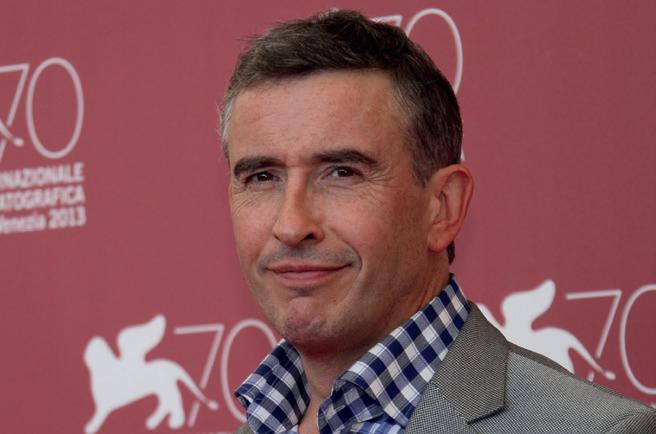
3 minute read
HUGH GRANT
In April 2011, Grant published an article in the New Statesman titled “The Bugger, Bugged” about a conversation with Paul McMullan, a former journalist and paparazzo for News of the World.
In unguarded comments which were secretly taped by Grant, McMullan alleged that editors at the Daily Mail and News of the World, particularly Andy Coulson, had ordered journalists to engage in illegal phone tapping and had done so with the full knowledge of senior British politicians. McMullan, torn into as ‘morally bankrupt’ by Steve Coogan live on Newsnight in 2011, also said that every British Prime Minister from Margaret Thatcher onwards had cultivated a close relationship with Rupert Murdoch and his senior executives.
When asked by Grant whether prime minster David Cameron had encouraged the Metropolitan Police to “drag their feet” on investigating illegal phone tapping by Murdoch’s journalists, McMullan agreed this had happened, and stated that police themselves had taken bribes from tabloid journalists: “20% of the Met has taken backhanders from tabloid hacks. So why would they want to open up that can of worms? And what’s wrong with that, anyway? It doesn’t hurt anyone particularly.” Grant’s article attracted considerable interest, due to both the revelatory content of the taped conversation, and the novelty of his turning the tables on a tabloid journalist.

While the allegations regarding the News of the World continued to receive coverage in the broadsheets and similar media, it was only with the revelation that the voicemail of murdered Milly Dowler had been hacked, and evidence for her murder enquiry had been deleted, that the
Hacked Off
In light of the allegations of the News of the World phone hacking into the mobile phone voice mail of murder victim Milly Dowler, on July 5th 2011 in partnership with Brian Cathcart and other concerned individuals, Media Standards Trust (MST) formed the ‘Hacked Off’ campaign. This MST is a think tank which had been formed in 2006 to carry out research on issues in the media sector, while advocating for press freedom as well as industry quality, transparency and accountability.
The campaign is supported by a number of journalists, broadcasters, politicians of all parties, writers and victims of phone hacking. Hacked Off produces its own publication ‘Free & Fearless’.

Hugh Grant is often the public face of Hacked Off, appearing on programmes like Question Time and Newsnight in order to give a voice to those on the receiving end of illegal press intrusion.

In 2012, in order to head off further misguided and unfounded criticism that ‘Hacked Off’ was merely a ‘secretive pressure group... of wealthy and powerful individuals and celebrities... which has successfully campaigned for state control of the media,’ the group disassociated itself from the MST.

The Hackers
As for those who indulged In phonehacking and other illegal forms of data and information gathering, many were cross-examined by Leveson.
Their demeanour is one of smug contempt, mostly for the self-entitled considerations they have about believing that they have circumvented the law, and this being untouchable. At the same time, when they get caught, there is often one of three reactions; the first being that they knew the law and the authorities, working at a glacial pace, are merely an occupational hazard.
Second is the smirk across their faces knowing that the authorities took so long to investigate, collate and prosecute. The third common reversion-to-type is to play the victim. With no concept of self-awareness, they will convince any who they believe cares that they are the patsy in a sting. Pitiful, isn’t it?
Irrespective the interest in the Leveson Inquiry at the time, including some hysteria by certain newspaper proprietors about the judiciary closing down the freedom of the press, it appears in 2023, little has been done to improve the behaviour of some aspects of the Fourth Estate. If nothing else, the fact that over 100 complainants are suing Mirror Group is testament to that.
coverage turned from media interest to widespread public (and eventually political) outrage.
In 2012, Grant settled a case he had brought with the News of the World. He subsequently became something of a spokesman against Murdoch’s News Corporation.
In 2018, Mirror Group Newspapers apologised for its actions towards Grant and other public figures, calling the affair “morally wrong”. This came after Grant accepted a six-figure sum to settle a High Court action. He donated the payout to Hacked Off.
Now, Grant has brought another action against the Sun newspaper. He told the court that they had use ‘burglaries to order,’ and ‘breaking and entering’ to obtain private information through ‘bugging, landline tapping and phone hacking.” For its part, The Sun’s legal team is saying that the case has no merit as it was ‘brought too late’.
As Alan Rusbridger, then editor of The Guardian wrote at the time, “The press must accept that the breach of trust engendered by a series of Editors’ Code breaches and a discredited PCC needs tackling immediately and resolutely.”
Still we wait.
Corporate lenders are beginning to report the early signs of stress on lending covenants as businesses feel the financial pressure of recent interest rate rises. But what should a business do if it is at risk of breaking lending covenants, asks John
Walsham, Business Development Consultant of Kreston Reeves.











